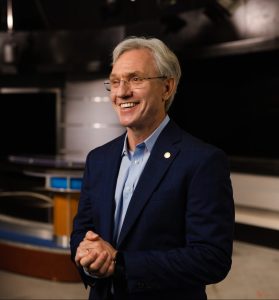
It has been 22 years since the tragic events of September 11th, 2001. Since then, new crisis communication measures resulted from this catastrophe. Pegasus Professor at the Nicholson School of Communication and Media, Dr. Timothy Sellnow, is a crisis communication expert. He has offered some insight to responses after crises such as 9/11 as well as how much communication has changed.
What are some effective crisis communication strategies/lessons that organizations implemented in response to 9/11?
“History confirms the wisdom of creating the Department of Homeland Security. DOH allows for a centralized and expedient response to crises of all kinds, ranging from disasters to terrorist threats or attacks. Prior to DOH, collaboration among agencies was much more difficult. Some doubted the merits of forming DOH, but those doubts have largely been absolved.”
From a historical perspective, how are we improving communication techniques when it comes to crises and tragedies?
“We learned that, even with the politically polarized state of our country over the past three decades, we can come together as a nation in a unified response when our national security is threatened. This unity is essential in providing a speedy and nimble response to a major crisis. The country’s collective response to 9/11 offers reassurance that, in the gravest of times, our nation can momentarily suspend political differences and align in a united crisis response.”
How has journalism changed after 9/11?
“Commitment to gatekeeping, including the process of vetting sources and confirming information, continues unimpeded in the journalism profession. The current difficulty is that many readers and viewers no longer rely on journalists for their news. Social media has empowered bias or malevolent sources to broadly distribute message with ease. Journalists are now performing the dual roles of reporting the facts and advising readers on the fundamentals of media literacy. In other words, journalists must fact check for others whose intentions are questionable. In some cases, the perils of misinforming the public make improving media literacy a matter of life and death.”
How has communication in general changed after 9/11?
“Crisis communication is now a well-recognized and credible area of research and training. Before 9/11 only a handful of universities taught crisis communication courses. Within government and industry, crisis communication was an afterthought. Today, most universities teach crisis communication, thousands of scholars focus on the subject, and organizations and agencies frequently engage in pre-crisis planning. As a result, we are much better prepared to communicate effectively during crises now than we ever were in the past.”
By Majdulina Hamed.
Published to Nicholson News on September 12th, 2023.
If you have any news, accomplishments or highlights about your work or life, please be sure to share them with us, by emailing us at NicholsonNews@ucf.edu.